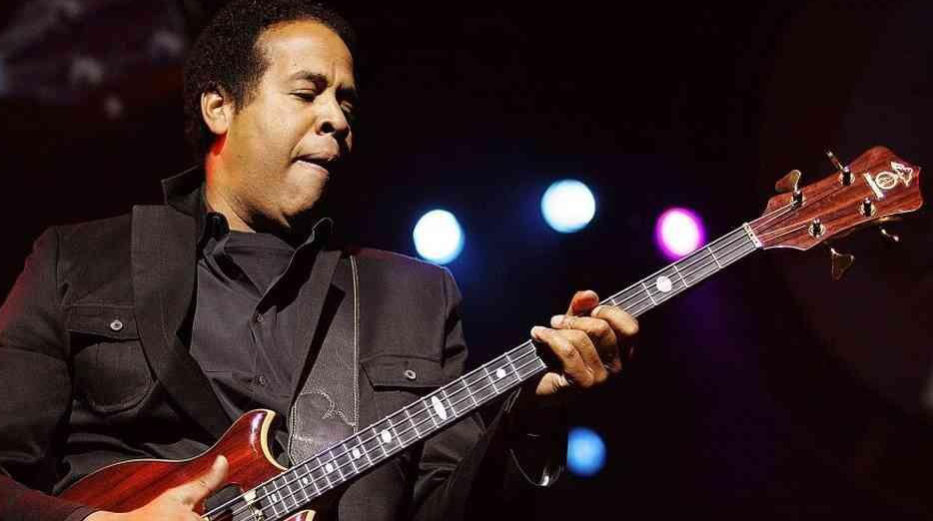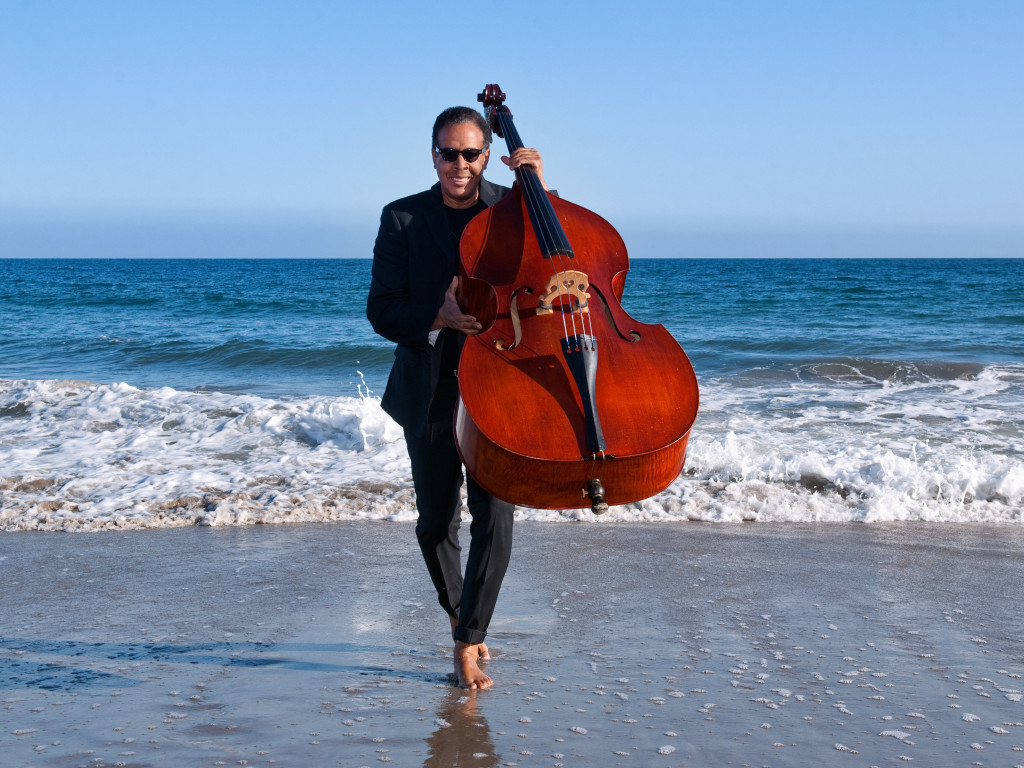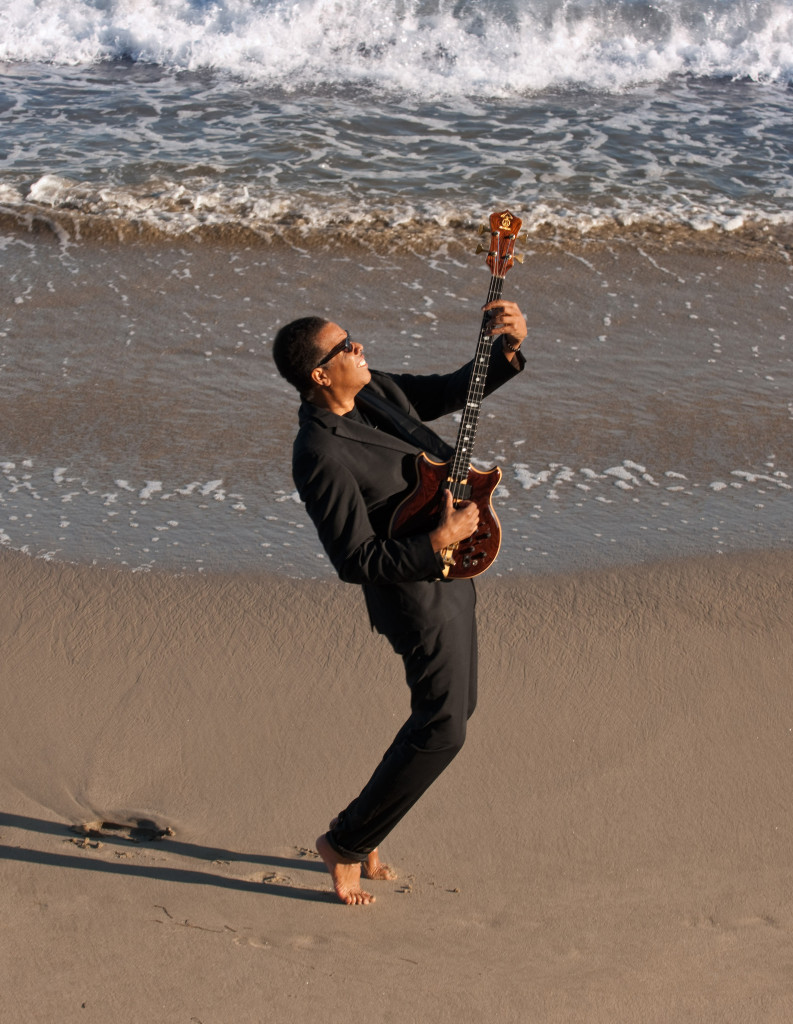Interview: Stanley Clarke, the Legendary Liberator of the Bass

In the midst of summer festival announcements, some fans see just one name of a travelling musician and decide they’ll attend a full day of music based on that one person. Stanley Clarke is one of musicians, whose name has showed up on the line-up of Ottawa’s Jazz Fest, which starts next week.
Clarke’s name is most closely attached to the 1970s jazz fusion group Return To Forever that also features Chick Corea as their leader. RTF pretty much pioneered the genre of electric jazz fusion, in a time when the jazz tradition was still just flirting with electric instruments. Clarke was just out of his teens when he started playing bass for a number of bands in New York City, and the Philadelphia native son went on to do nothing less than take the bass further than anyone had ever taken it before.
He is known as the Great Liberator of the bass, an inventor of instruments, a pioneer of jazz fusion, a celebrated composer, a four-time Grammy Award winner, and one of the last four-stringers. He’s also a really pleasant person to talk to, which I learned last week. He’ll be playing with the Stanley Clarke Band on June 24 at 7 p.m. in the NAC Studio.
You are on tour this summer in North America & Europe, is there anywhere that you haven’t toured yet?
You know, really, internal China is the one place I haven’t. I think that’s only country that I haven’t really got into. Of course, there’s North Korea too. Can’t wait for that! There are so many places to play nowadays, especially in the festival seasons.
Back when you began playing bass professionally in the ‘70s, the cliché was that bass players were slow, that they didn’t have the chops of the guitar player. You changed all that. It was called the bass revolution, and you are the great liberator of the bass. Was there a defining moment when you decided you would not let the bass stay stuck in the background?
It’s really interesting because I think as years went by it became less about the bass and more about the person playing the bass. I was in bands and had certain skills: I could write music, compose & rehearse with bands. I thought it was kind of ridiculous that there would be a guy standing out front who didn’t write the music and didn’t play all that well. He was there just because of a special significance to his instrument.
Then I met Charlie Mingus, we had dinner one night, and he changed my life. I think he could have run at small country somewhere. He was crazy but what I liked about him was that he was crazy in a real sober kind of way. A very pointed guy. He had his own band, and there weren’t too many bass players that had their own bands. He was a great composer and was well-respected. He knew how to get his music played and understood.
So I feel what I did was nothing really new, but I was one of the few that did it in those days. It’s pretty funny now, that so many bass players have their own bands. It’s pretty normal!
How is your relationship with Chick Corea & Lenny White? Do you still play often?
Here and there, all those guys went off and do their own things. We’re still very close because we spent so many years together with Return to Forever. It’s that kind of bond that you don’t really break. It’s difficult to break that unless somebody really pisses you off!

Is the acoustic bass still your favourite kind?
The electric bass I didn’t really study just because there were no books out at the time. Well, there was one book by Carol Kaye, a bass player who did a lot of recording sessions. It had a couple notes in it but it was kind of an introduction to the electric bass.
The acoustic bass comes from the violin family, and that goes back hundred of years. I really studied that and it’s the main instrument that I practiced. Pretty much everything comes from that for me. Even though my electric bass is so different, the acoustic bass gave me my foundation. I often tell young bassists that whether or not they play the acoustic live or at all, they should take lessons on one. Or if they can take on the responsibility of teaching themselves they should own one. It’s a very good instrument and there are pages and pages and volumes for the stand-up bass.
Do you still advise bass players to not worry too much about being good or bad, just be solid?
That sounds like it’s kind of a metaphor. There’s some truth in that. But I think you should never worry about being good or bad. That’s life, why worry about anything more than you have to? The main function of the bass is to bring rhythm and harmony together. If you play in a band, the more solid you are the more you can play with the drummer, and play in time. The more you do that the more you’ll find work.
It’s natural when you pick up the bass that you want to learn how to solo. But it’s not what people really look for in a bassist. You can play the fancy licks and all that, but if you want to work, and you want to have a career playing with other people, you just have to be solid.
I know you help young musicians a lot. You founded The Stanley Clarke Foundation with your wife Sofia, a charitable organization that offers scholarships to young musicians. Can you speak to that a bit?
We send kids to school and give them scholarships. We don’t really make a big deal out of it. It’s kind of important to me. I think it’s a nice thing to do.
I look at life in the sense that anything that you can do to lighten the load, to contribute to the planet not blowing itself up is a good thing. I truly believe that art, music, and literature keeps people cool a little bit. There’s so much violence in the world. If we didn’t have art… we’d probably breed more of the violence. There are many societies around the world that clap down on artists and at this point aren’t doing too well…

How often do you still play your inventions, the piccolo bass & tenor bass?
Yeah! I play the tenor bass and the regular bass. Haven’t played the piccolo bass in a while. I play them because it’s fun and it’s kind of a way to expand the range of the bass. Now, you have guys that play six-string basses, which is the tenor bass and the regular bass mashed together. It’s hard for me to play that but I’ve even seen guys play on nine-strings… I’m just an old-fashioned stringer!
A few of the guys up in my age range call ourselves the last of the four-stringers.
NYC still seems to be the ticket to further musical careers but is it still known as the mecca for young jazz musicians?
There’s New York, Los Angeles, Nashville, and some even go as far as London or Paris. But nothing will ever take the place of New York City. Even if it produced less music than Los Angeles, there’s something there about the history of jazz & instrumental music. The greatest of the greatest of all time came from New York, and that’s going back to Charlie Parker and Louis Armstrong. A lot of great music is played there. Young jazz musicians feel they have to cut their teeth in New York.
The LA scene is a little different. When I came out, there was a real thriving session scene. Lot of commercials, TV shows, and films are scored out there. There might be more recording in Los Angeles than in New York City. Eventually I started writing for film scores and TV shows too.
You’ve scored many movie & show themes, including the starkly contrasting Pee Wee’s Playhouse theme & the score to Boyz n the Hood. What score was the most challenging for you out of all of them?
There was a show called Murder She Wrote, the show had been on forever and I was called in to do a couple things. The first show was fine, but the second was all Celtic music. At the time, I wasn’t at all familiar with that kind of music. The director said, “You’re a composer, right?” I said yeah. He said, “Then go to the library and do some research.”
I learned a big lesson about being a composer then. It’s a job where you often have to do research to do the specific thing that the director or producer wants.
I did a film called Romeo Must Die a couple years later. Jet Li wanted a certain kind of music from China: Mandarin music. It could not be Cantonese. He said, “Man, you have to make sure you get it right!” The difference is very subtle. One slip and I could have caught a foot in the head. So I went and did the research. I learned a lot. I’m learning still! You never know what you are going to confront.
So you play a variety of themes. What kind of vibe can we expect from the Stanley Clarke Band at the NAC at the end of the month? Are you playing electric bass, stand-up or both?
We’ll be playing music from all the different periods. From my School Days period, which was very popular in the ‘70s, a couple Return to Forever pieces, some acoustic music that’s jazz, and other pieces. It’s going to be very eclectic! The cool thing about getting old is there are so many songs to pick from but it’s sometimes a pain because you can’t play them all.
The Stanley Clarke Band will perform at the NAC Studio on Wednesday, June 24, at 7 p.m.
